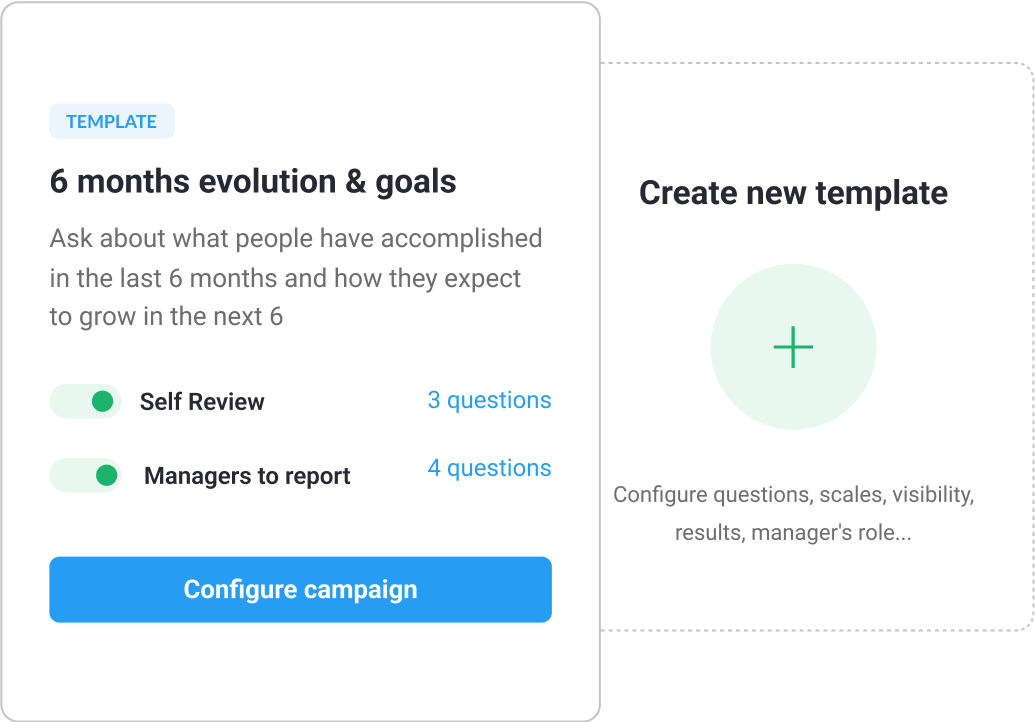Frequently asked questions about performance reviews
What is the process of performance review?
A performance review is a process where an employee's performance is evaluated and discussed. It aims to provide constructive feedback, recognize achievements, identify strengths and areas for improvement, and align individual goals with the company's objectives. It is a key tool for fostering professional growth and company success.
What are the steps of a performance process?
The performance review process includes nine key steps: Analyze your company, define clear objectives, evaluate how this process fits with the others, define the purpose of the performance review, define the right time and frequency, include the right questions, choose the right measurement scales, choose the right performance review tool to automate the process, and communicate the purpose and process to employees.
- Analyze your company to align the process with your company culture and needs
- Define clear objectives for what you want to achieve with the performance review process.
- Evaluate how this process fits with other HR initiatives.
- Define the purpose; employee development, compensation, etc.
- Define the right time and frequency for reviews.
- Include the right questions to measure what matters.
- Choose the right measurement scales for fair evaluation.
- Choose the right tool to automate and streamline the review process.
- Communicate the purpose and process to all employees to ensure buy-in.
Are performance reviews still relevant?
Absolutely. While the traditional, once-a-year performance review is becoming outdated, the concept of performance management is more relevant than ever. Modern performance reviews have evolved into agile, continuous feedback processes as regular check-ins, making them crucial for driving employee engagement and professional growth.
Companies are switching their single annual reviews in favor of:
- Frequent check-ins: Light and informal feedback conversations held quarterly or monthly.
- 360-Degree Feedback: Gathering insights from a wider range of employees.
- Focus on development: Prioritizing learning and career growth over ratings.



